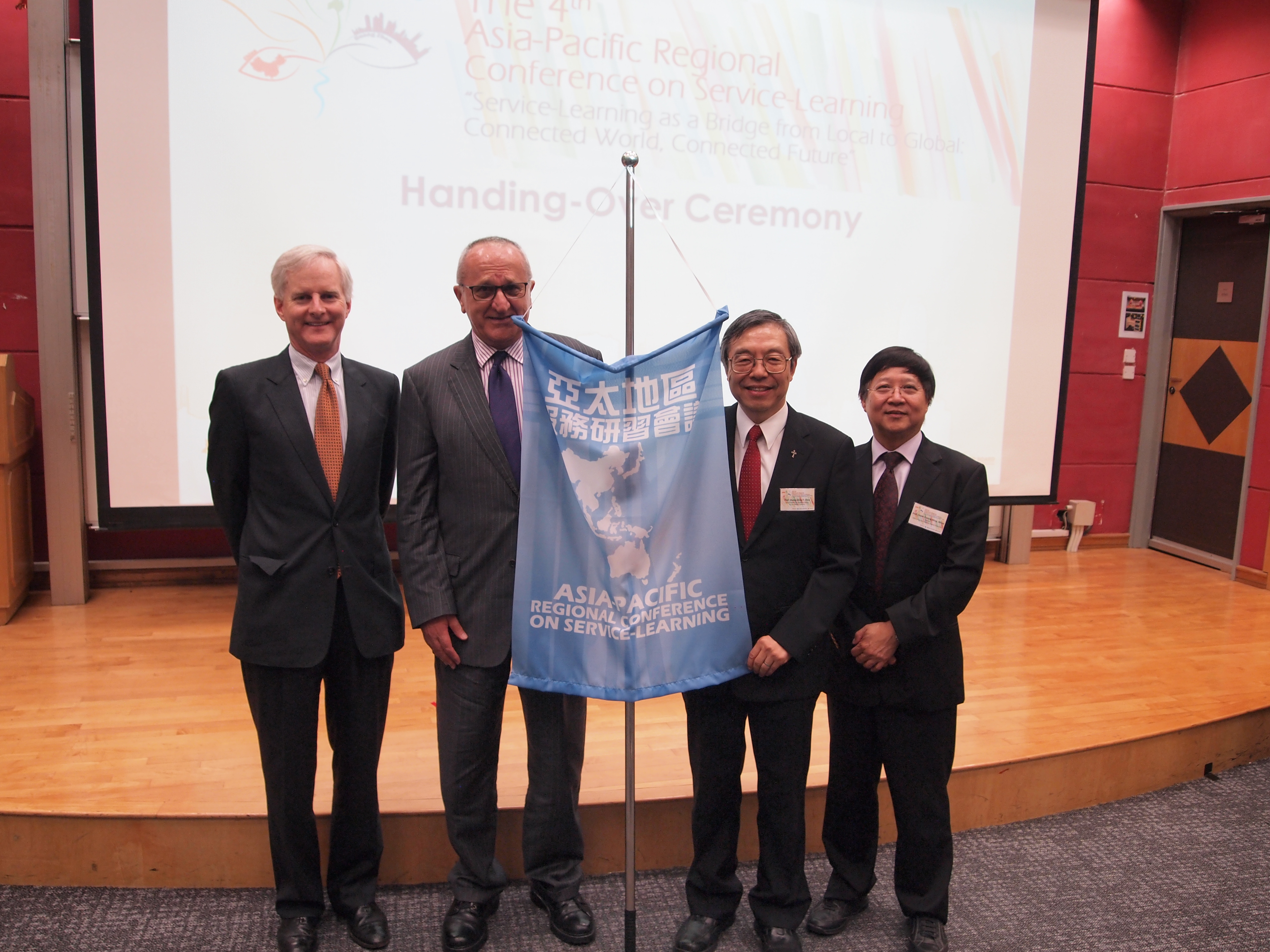Location
MD215, Paul Cardinal Shen Medical Building, Fu Jen University
Start Date
28-5-2015 4:30 PM
End Date
28-5-2015 5:40 PM
Description
To raise students' awareness of global issues is one of the main objectives in service learning, students in the Hong Kong Polytechnic University (PolyU) are encouraged to apply their learning outcomes to serve the underprivileged community for rather long term benefits. This paper will discuss how PolyU students from different disciplines committed a service learning project in Yogyakarta, Indonesia.
Together with students from Duta Wacana Christian University(DWCU) with different disciplines, a group of students from PolyU joined a service learning project"Yogyakarta Kampung Field School"(YKFS) in Yogyakarta, Indonesia. YKFS aims at exploring the need of the local rural community and proposing solutions to empower the local community development.
In order to have thorough and quick understanding about the serving community in foreign, PolyU students joined hand with DWCU students to study the geographical relationship of natural resources and local community needs. They used a new mobile Apps, which was jointly developed by both DWCU and PolyU for collecting spatial information and production of digital map with contemporary GPS, GIS and mobile mapping technologies. Students interviewed the villagers to obtain geospatial information and explored the community needs with SWOT approach. Through this learning process, they had more understanding about the strengths of the local community such as local wisdom and rural assets. They also addressed their weakness of villagers in using technical knowledge and global information. It enabled them to propose the sustainable suggestions with achievable opportunities and tackle those threats towards their proposing suggestions in the local community.
Students in this project implemented the new ideas with villagers, such as trash bank operation, trail run in mushrooms cultivation, they also simulated the local villagers to attempt in reduction of global carbon emission and the conservation of biodiversity. Hygienic issues have also been addressed, such as the transformation of local primitive toilet to a better sanitation place with international health standard.
Through their reflective journals and questionnaires results, they illustrated that they have different understandings about Indonesian, local community, human interaction, empowerment, power of knowledge and the development strategy.
Recommended Citation
Lam, J., Shea, G., Bawole, P., & Raharjo, W. S. (2015, May). Learning outcomes from international service-learning. Paper presented at the 5th Asia-Pacific Regional Conference on Service-Learning: Love Journey: Community Engagement through Service-Learning, Fu Jen Catholic University, Taiwan.
Included in
Learning outcomes from international service-learning
MD215, Paul Cardinal Shen Medical Building, Fu Jen University
To raise students' awareness of global issues is one of the main objectives in service learning, students in the Hong Kong Polytechnic University (PolyU) are encouraged to apply their learning outcomes to serve the underprivileged community for rather long term benefits. This paper will discuss how PolyU students from different disciplines committed a service learning project in Yogyakarta, Indonesia.
Together with students from Duta Wacana Christian University(DWCU) with different disciplines, a group of students from PolyU joined a service learning project"Yogyakarta Kampung Field School"(YKFS) in Yogyakarta, Indonesia. YKFS aims at exploring the need of the local rural community and proposing solutions to empower the local community development.
In order to have thorough and quick understanding about the serving community in foreign, PolyU students joined hand with DWCU students to study the geographical relationship of natural resources and local community needs. They used a new mobile Apps, which was jointly developed by both DWCU and PolyU for collecting spatial information and production of digital map with contemporary GPS, GIS and mobile mapping technologies. Students interviewed the villagers to obtain geospatial information and explored the community needs with SWOT approach. Through this learning process, they had more understanding about the strengths of the local community such as local wisdom and rural assets. They also addressed their weakness of villagers in using technical knowledge and global information. It enabled them to propose the sustainable suggestions with achievable opportunities and tackle those threats towards their proposing suggestions in the local community.
Students in this project implemented the new ideas with villagers, such as trash bank operation, trail run in mushrooms cultivation, they also simulated the local villagers to attempt in reduction of global carbon emission and the conservation of biodiversity. Hygienic issues have also been addressed, such as the transformation of local primitive toilet to a better sanitation place with international health standard.
Through their reflective journals and questionnaires results, they illustrated that they have different understandings about Indonesian, local community, human interaction, empowerment, power of knowledge and the development strategy.
